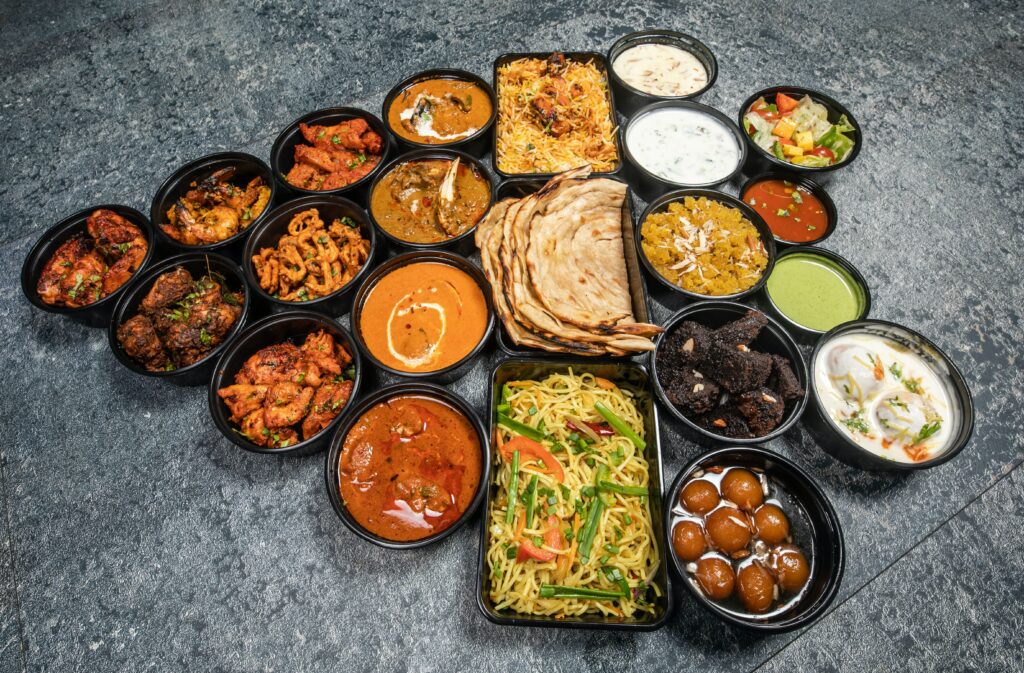Muslims and non-Muslims alike can be very intentional and conscientious about what they consume for nourishment and pleasure. For Muslims, eating halal isn’t simply about health benefits or even following rules but eating foods that will nourish their bodies. Halal is a way of life that encompasses all aspects of behavior and choices. Practicing Muslims worldwide abide by halal principles and avoid products which will subject them to haram products.
Halal regulations allow all adherents to Islam to eat humanely slaughtered meat that is harvested in accordance with its principles and other clean food. Halal rules don’t harm the people who follow them — they allow Muslims to consume that which benefits their overall health, enjoy life-giving products, and the rules also help Muslims to avoid products that can harm their minds and bodies.
Conversely, haram products constitute all food, beverages, and substances that weren’t ethically sourced, harvested, procured, or prepared and that can harm a consumer’s overall health.
Knowing the definitions of halal and haram and the differences between them can help Muslims better follow this central tradition.

Contents
Halal and Haram: Definitions
What halal means
Translated from Arabic, halal means “lawful or permitted.” Although halal is often used to denote food, drink, and other ingested products, it pertains to lawful practices through all facets of life. The rules of halal don’t fluctuate — they remain the same throughout time and are inspired by the Quran.
Halal food and meat are defined as such based on many factors. These factors include:
- The origin of the raw materials of the products
- How these products affect the central nervous system
- How animals are handled and harvested (humane processes are required)
- How the food is prepared, and whether it undergoes cross-contamination
For meat (including poultry) to be considered halal, the following must occur:
- Slaughter must be carried out by a Muslim
- Slaughter must occur only through a cut to the carotid artery, jugular vein, or windpipe. This practice renders an animal numb to any further pain or undue suffering.
- All animals must be healthy at the time of slaughter.
- No animal can be “stunned” to death.
- An animal’s blood must be fully drained after slaughter, and packaged meat cannot contain blood.
- From packaging to storage to preparation, no cross-contamination with haram products can occur.
Other halal food
Halal food products encompass almost every food category. As long as products have not been cross-contaminated by, and do not contain ingredients of, haram food, most food is considered halal. Apart from meat, halal food products can include:
- Bread
- Cereal
- Dairy products
- Fish
- Fruit and Vegetables
- Legumes
- Nuts
- Pasta
- Seafood
What haram means
The differences between halal and haram food are relatively easy to distinguish. Haram is the Arabic word for “forbidden” and includes any products which are deemed unhealthy or harmful to life.
Meat considered haram includes the following:
- Swine (including pigs and boars). Such animals are considered unclean and carnivorous.
- Birds of prey (For example, eagles and hawks)
- Carnivorous animals (including alligators and bears)
- Insects
- Amphibians (such as frogs and salamanders)
- Poisonous fish (including blowfish and jellyfish)
- Any animal not slaughtered under halal regulations
- Meat that contains blood
Other than swine and alligator, most animals considered haram are not popular with the general consumer. Thus, it’s fairly easy to avoid consuming these products.
Other food and drink products considered haram
Plants, drinks, and certain food additives can fall into the haram category as well. Toxic or poisonous plants are considered haram as they harm the body and can negatively impact quality of life. For example, fermented grapes and opium aren’t permissible under halal regulations.
Any minerals that could adversely impact the central nervous system or produce other harmful effects are also haram products. This pertains to other manufactured goods, such as petroleum jelly. However, most plants are halal.
Alcohol (ethyl alcohol) of any kind and in any quantity is haram as it can impair judgment and may have negative effects on overall health. Alcohol is never permissible — even in cooking processes. This aspect of haram includes products like sherry wine and beer-based soups. Non-alcoholic drinks deemed hazardous to health or that include haram ingredients may become haram.
Food additives are a bit harder to detect and require a consumer to carefully read the ingredients on restaurant menus and food labels. For example, many foods contain gelatin or food-coloring, both of which are animal by-products. Unless these additives have been halal-certified, they are haram and can cause an entire meal to become haram.
How to buy halal food?
The simplest way to know (with the highest fidelity) if a meal or product is halal is to know if it is halal certified. As there are a plethora of ways a product can become non-halal from packaging materials to additives, consumers may find it difficult to determine halal compliance
In order for pre-packaged food or food served at a restaurant to be considered halal, it must go through a certification process. In the U.S. and internationally, this certification can be completed through the American Halal Foundation.
Can non-Muslims practice halal?
Many people from all faiths and lifestyles may adapt to the halal lifestyle. They may be attracted to the humane handling and slaughter of the animals and the benefits of clean eating. In other words, you do not have to be Muslim to eat halal. For Muslims, however, halal is not a voluntary choice but a lifestyle.
The health benefits of halal meat
Halal is a humane process for harvesting the animals used for food, which in turn, makes halal meat healthy. When livestock is raised in accordance with halal principles, consumers benefit physically and spiritually. The lack of blood in halal meat can improve taste as well.
The distinct differences between halal and haram food and meat help halal adherents to know what foods to avoid, and what foods they can embrace. However, halal meats can become haram if they have contact with haram food. It’s important to ensure any pre-packaged food and restaurant options are halal-certified before purchasing.
Knowing the difference between halal and haram foods becomes second nature to most Muslims. It is a way of eating and living that promotes spiritual and physical health in our bodies and communities.
Get in Touch
Connect with a halal certification expert.








